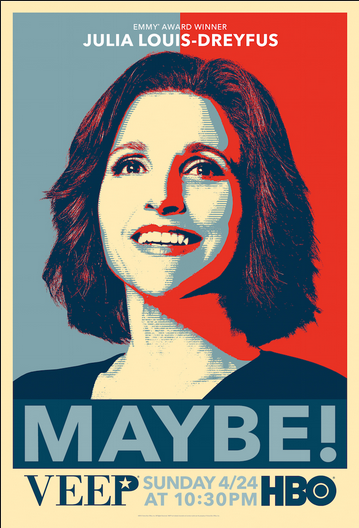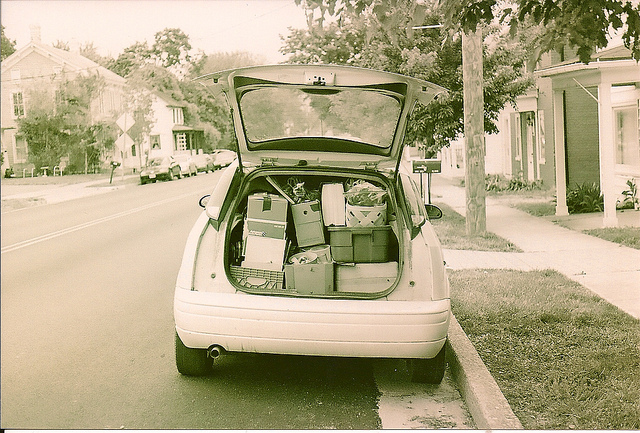Written under the supervision of Prof. David L. Robbins and submitted on 3 January 2012, this essay was part of my total coursework at the Department of Anglophone Literatures and Cultures at Charles University’s Faculty of Arts. The essay is published with the kind permission of the faculty.
American Dream in Arthur Miller’s Death of a Salesman
American dream is a concept we have all heard, a concept we encounter almost on a daily basis, but also a concept which only a handful of us could explain satisfactorily. It is generally assumed, though, that the essence of it lies in “unsullied newness, infinite possibility [and] infinite resources” (Hochschild, 15), as Jennifer L. Hochschild convincingly argues in her essay called “Facing Up to the American Dream”. A little more approachable view on the nature of American dream was provided by the former President of the United States Bill Clinton who explained it as following: “The American dream that we were all raised on is a simple but powerful one – if you work hard and play by the rules you should be given a chance to go as far as your God-given ability will take you” (Hochschild, 18). In spite of the seeming simplicity or straightforwardness of this statement, it is quite true, though, that both explanations are to a great degree rather vague. This is mainly caused by the fact that the whole concept of American dream is characterized by its “elasticity and a range of ideology” (Hochschild, 25). In other words, a precise definition of the American dream is, due to its equivocality or wideness of meaning, extremely difficult to pin down. Still, thanks to the work of Jennifer L. Hochschild and other thinkers, who laid the foundation stones of the research and systematization of this concept, we have a very good groundwork with which we can operate in our further analyses. This essay is to do precisely that – use the concept of the American dream and analyze its employment in Arthur Miller’s Death of a Salesman, a “play about a believer in the American dream who struggles with the knowledge of his failure” (Bigsby, 100).
Before we begin to discuss the utilization of the concept in this play, it is important to examine the origins of the whole idea of the American dream. In what times did it first appear, and has it changed its form ever since? Hochschild states that “the idea of the American dream has been attached to everything from religious freedom to a home in the suburbs” (Hochschild, 15), but in the Puritan America of the 16th and 17th centuries, it was connected predominantly, if not only, to the religious freedom. America, being seen as a land of immense opportunities, gave rise to the American dream of free worship. Already by the year 1776, however, the concept was drastically changed in its nature. The idea of the American dream became institutionalized as the phrase “pursuit of happiness” („The Declaration of Independence“), with which all men are presumably endowed, was written in the founding document of the United States – The Declaration of Independence. The American dream thus became an ideal social vision in which “each men and each woman shall be able to attain […] the fullest stature of which they are innately capable” (Benziman, 22). To put it in other words, the American dream was no longer religiously but secularly-based – and it remained secular and “socially-oriented” (Benziman, 22) up until this very day. Over the course of the War of Independence, the American dream had to do predominantly with political freedom, and in the 20th century (for white men, anyway) with money. Even Death of a Salesman remains true to this trend, working with the concept on a secular level, and not even once mentioning religion. As Galia Benziman sums this issue up, the original American dream envisioned a land of religious “freedom with opportunity and equality for all” (Benziman, 23), but this utopian picture was, later on, distorted into the dream of business success.
Indeed, the 20th century American dream was to much greater extent connected with monetary success and materialism than with anything else. This “faith in the supremacy of the material over the spiritual” has to do with the time period in which the play is set. The play, “first produced in 1949, was written at the height of the consumer boom that followed the recession of the 1930’s and the war years” (Benziman, 20). After the times of overall material insufficiency and abstinence, the American economy became consumption-oriented and turned immensely materialistic. “Salesmen hardly needed to sell, simply taking orders from those happily escaping from wartime austerity” (Bigsby, 109). Willy Loman, working as a salesman, not only takes an active part in the workings of material society, but he has become a victim thereof as well. Think for instance of the “failure of the consumer goods he has acquire (Bigsby, 103) – the fridge and the car. The Lomans have bought these and other items of the materialistic society thinking they need them in order to reach the state of happiness, thinking they need them to achieve their American dream, only to discover that these are not really all that important, and that instead of happiness they bring them only troubles. Biff shares this view as well, claiming that what he has always wanted was only “my own apartment, a car, and plenty of women” Miller). Even though we now know that “material well-being is only one form of accomplishment” (Hochschild, 15), Miller studies the effects of materialism on people’s lives. In search of a good life, the Lomans surround themselves with stuff they consider necessary, stuff they think will make them happy, not seeing the fruitlessness of such action. Materialism as such, represented by buying products we often can not even afford, is simply not an advisable dream to follow. What is, then?
Perhaps, this dream has to do with success. “People most often define success as the attainment of a high income, a prestigious job, [and] economic security” (Hochschild, 15), all of which are to be found in Death of a Salesman. When Biff describes his dream of his bright future, he says: “Someday I’ll have my own business, and I’ll never have to leave home any more” (23). Clearly, having his own business would bring him high income and thus economic security as well as some sense of independence. At the same time, though, having a high salary does not necessarily imply the need to immediately spend the money on the products of the materialistic society. Another character which may be used as an example of success, ergo richness, being an inseparable part of the American dream, is that of Willy’s brother who famously tells Willy: “When I was seventeen I walked into the jungle, and when I was twenty-one I walked out. And by God I was rich” (37). This passage shows that getting rich does not necessitate hard work. It is perhaps even more preferable if one obtains a huge amount of money without having to do much work.
According to Jennifer L. Hochschild, success can be measured in three ways (Hochschild, 16-7). Firstly, she talks about absolute success – that is achieving some threshold of well-being which does not have to be particularly dazzling but which is definitely higher that where one began. In the play, it is apparent that Willy originally only wanted to secure his family, buying the house for the boys with their future families to live in. Secondly, she states that success may be relative, consisting in the urge to become better off that some comparison point. In the case of Willy Loman, this comparison points would be his neighbors, Charley along with his son Bernard. Willy simply wants to show them that he and his family are capable of surpassing them in amounting wealth and gaining social status. Thirdly, Hochschild talks about competitive success which has to do with achieving victory over someone else. Willy comments on this issue himself, claiming at one point that “the competition is maddening” (12), and elaborating on this idea a little bit further, saying: “And it’s a measly manner of existence […] always to have to get ahead of the next fella” (16). Obviously, the highly competitive modern environment does not do him good, effectively making him feel out of place, perhaps even old and obsolete, making him feel like the dream he has always had may not become reality after all.
This brings us to the following question: For whom is then the American dream designed? The answer, in theory, is quite simple: anyone, “regardless of ascriptive traits, family background, or personal history” (Hochschild, 18). This assessment is, of course, greatly unrealistic for not only do people start their pursuit of success with varying advantages, some groups are even completely barred from taking part in this pursuit – let us state, for instance, “women of any race and men who were Native American, Asian, black, or poor” (Hochschild, 26). In spite of these facts, presumably generally known, Hochschild states that three quarters of Americans still agree “that they have a good chance of improving their standard of living” (Hochschild, 21), which goes hand in hand with one of Bill Maher’s apt jokes saying that the poor never think of themselves as being poor, but rather as being currently inconvenienced millionaires. Following the line of this argumentation, it would seem, then, that Willy, a white male, is a perfect candidate for achieving the American dream. Considering the fact that he does not achieve it, we might wonder: What are the reasons for his failure?
Before we delve into answering that question, though, let us consider what kind of a character Willy Loman is in general. In choosing a salesman for his central character in this play, Miller was identifying an icon of his society (Bigsby, 106), exploring some of the effects of the changing socioeconomic climate in the States at that time. According to Galia Benziman, “through the representation of this salesman’s emotional collapse, the drama voices the playwright’s resentment against the damaging and demeaning power of the American ethos of consumption and private economic success on the individuals who uphold and nourish it” (Benziman, 20). Additionally, even though Miller himself has stated that it was not his intention, Willy’s surname is highly suggestive of a common man – “Loman” sounding the same as “low man” (Bigsby, 112). In spite of the sheer fortuitousness of the name, Willy does indeed represent an average man “dazzled by a national dream of becoming and possession” (Bigsby, 112), which makes him a highly relatable character for the audiences who may thus become acquainted with the fact that, just like it is the case with Willy, their own chases after the fabled American dream might not end so auspiciously.
As a character, Willy Loman is plagued by feelings of inadequacy and obsoleteness. In the modern world Willy, who is “past sixty [and] tired to death” (8) – is becoming outmoded. In the world of constant changes, world in flux, he refuses to adapt and insists on remaining always the same, vehemently asserting that “I don’t want a change” (12). Adaptability to changes is, however, one of the keys to success. Another characteristic of his, which may be typical of anyone who pursues the American dream, is self-reliance. As Willy claims: “I never asked a favor of any man” (62). Even though we do not have to believe him completely, such an Emersonian sense of independence and self-efficiency surely is admirable. Nevertheless, it may also prove counterproductive for, as we are told a little bit later, a huge part of gaining success “is contacts” (68). Therefore, it is only a matter of individual approach whether we want to reach our dreams by ourselves or with the help of others. Willy, out of pride – let us remember him lashing out on Charley, who offers him job after he had been fired, shouting: “I don’t want your goddam job!” (76) – decides to chase after the dream alone, not realizing that in his old age, he would really need help. He may not see the reality clearly but his wife definitely does. She understands his situation and is also aware of his not-so-bright past. In a heated argument with her sons, she tells them: “Willy Loman never made a lot of money. His name was never in city paper. He’s not the finest character that ever lived. The man is exhausted.” (44) In a way, she sees her husband’s future fall but is unable to help him in any way. He is simply blind to the fact that the idyllic fable and the public myth of the American dream will be forever eluding him, that he will never reach it (Roudané, 61).
This brings us to the theme of failure to achieve the American dream which is so characteristic not only of Death of a Salesman but also of so many ordinary people in the real world. As it was already mentioned before, the American dream, albeit pretending to be for everyone, is intended only for a relatively small group of individuals. The problem is that the rest is for the most part unaware of the impossibility to achieve their dream goals, which eventually comes as a complete surprise to them. It is difficult to wrap one’s mind around the idea that “effort and talent alone do not guarantee success” (Hochschild, 30). Furthermore, we may try our hardest and still, in case of our failure, we are at risk of being presumed to lack talent or will. In other words, if our success results from individual volition, then our failure is perceived to have to result from the lack thereof (Hochschild, 30). Simply put, failure to achieve the American dream is undesirable and unseemly for it implies failure of oneself.
What does Willy’s failure to achieve his dream stem from, then, in case of Death of a Salesman? First of all, not willing to adjust to the world that has clearly changed, world that has become “all cut and dry” (63), Willy still clings to the old-fashioned values. Above all else, he wants to be “well liked” (23), “a condition he confuses with success” (Hochschild, 30). Secondly, his failure has to do with his surrender to materialism which, now in his old age, comes to haunt him and bring him troubles (Benziman, 25). “That goddam Studebaker” (56) is constantly in need of fixing, as well as the refrigerator which “just broke again” (56). In his youth, he bought both of these items thinking they would bring him happiness and peace in his old age, but now they only drag him down both financially and mentally. Speaking of mental issues, thirdly, Willy’s failure is also caused by his “delusory mode of thinking” (Benziman, 25). In his last days, he does not seem to be interested in reality all that much. Instead, he flees to the past, finding haven in his own memories of the brighter and happier past. In spite of his own failure, though, we may not perceive Willy’s character as a tragic one. After all, he dies in hope and optimistic, believing that his death will bring a lot of money to his family, thus finding “purpose in the purposeless” (Bigsby, 118).
It is questionable, however, whether his committing suicide brings anything positive into the world of his family. Even though it is true that it may remind them “that the dream may be just that – a dream, to be distinguished from waking reality” (Hochschild, 29), thus enabling them to recognize “the emptiness of the dream that Willy espoused” (Abbotson, 137), (think, for instance, of what Biff said at his funeral: “He had the wrong dreams. All, all, wrong. (110)) they will most probably not get the insurance money for which Willy had killed himself. The reason for that is that the insurance company will unavoidably put two and two together, realizing that Willy’s death was indeed a suicide, which will make his policy invalid. The evidence of the company possibly having suspicions about Willy is provided by Linda already in the first act. When talking to Biff, she tells him: “The insurance inspector came. He said that they have evidence. That all these accidents in the last year – weren’t – weren’t – accidents” (46). In effect, Willy had killed himself in vain. As Matthew C. Roudané argues, “his downfall and final defeat illustrate not only the failure of a man but also the failure of a way of life” (Abbotson, 137), thus seeing Miller as criticizing the society because of people who keep poisoning their lives by their perpetual desire to become successful and rich.
The play itself may not be perceived as being so apocalyptically negative in its nature, though, for Miller offers us some positive ways to pursue the American dream as well. He suggests that the American dream may actually work for some people – in particular, for Bernard and Charley, and for Willy’s brother. In the case of the first two, he presents us with a form of the American dream which is turned “not on self-delusion and an amoral drive for success but on hard work and charity” (Bigsby, 105). Thus, being “unselfish, generous, [and] socially responsible” (Benziman, 24), this father and son duo forms an analogical contrast to Willy and his sons. Both Charley and his son Bernard are extremely hard working and charitable. Bernard helps Biff with math, giving him answers to the tests, and doing all this in spite of Biff never showing any sort of gratitude to him, never thanking him for all his help (Benziman, 36). Charley, analogically, generously keeps giving Willy money to help him get by, and even offers him a job when Willy loses his position as a salesman for which, once again, he is not even thanked.
The last successful achiever of the American dream is Willy’s brother, Ben, who in spite of having been able to make a lot of money and thus gain success did all of that “at the cost of [his] own moral integrity” (Abbotson, 137). In one of the memory scenes in which he appears, particularly in the scene where Willy tells him about their mother’s death, it is made quite clear that he is rather “cold and insensitive” (Benziman, 35). He might have gain immense riches, but all of that was at the cost of his morality and good human nature.
In conclusion, what Miller attacks in his Death of a Salesman is the American dream “as interpreted and pursued by those for whom ambition replaces human need“ (Bigsby, 105), and the play thus should be read as an appeal to reestablish the concept as it should be dreamt, and as it had once been dreamt, “before the deterioration into an exclusively self-centered ambition for personal profit” (Benziman, 21). Throughout the course of the play, Miller warns us from the shallowness of materialism and the idea that material well-being is in any way vital for our personal well-being. The play constructs the American dream as harmful as long as it is based on selfishness and greed with no consideration for the good of the bigger community (Benziman, 21). In spite of, or perhaps because of, the tragic end of the main character, there is hope that the audiences will see through all of his mistakes and take a lesson from them.
Bibliography:
Abbotson, Susan. C. W. Critical Companion to Arthur Miller. New York: Facts on File, 2007.
Benziman, Galia. “Success, Law, and the Law of Success: Reevaluating Death of a Salesman’s Treatment of the American Dream.” South Atlantic Review Spring 2005: 20-40.
Bigsby, Christopher. Arthur Miller: A Critical Study. Cambridge: Cambridge University Press, 2005.
Hochschild, Jennifer L. “Facing Up to the American Dream.” Race, Class, and the Soul of the Nation. New Jersey: Princeton University Press, 1991: 15-32.
Miller, Arthur. Death of a Salesman. London: Penguin Books, 1949.
Roudané, Matthew C. “Death of a Salesman and the Poetics of Arthur Miller.” The Cambridge Companion to Arthur Miller. Ed. Christopher Bigsby. Cambridge: Cambridge University Press, 1997.
“The Declaration of Independence.” 8 September 2011. 20 December 2011<http://www.ushistory.org/declaration/document/>





Napsat komentář